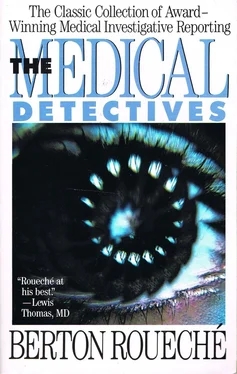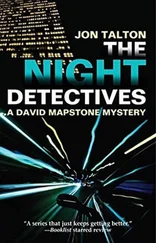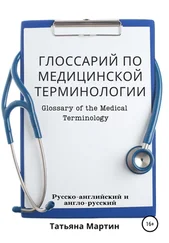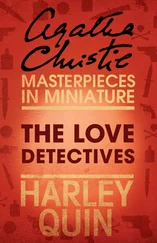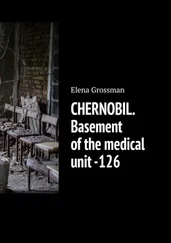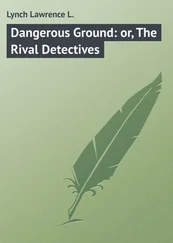"I was in the office when Fuerst called," Dr. Pellitteri said. "Before he hung up, I got on the phone and we made the necessary arrangements about questioning the patients and their families—who was to see who. Then I took off. I wasn't too pessimistic. The odds were against a quick answer, but you never know. It was just possible that they all bought from the same store. Well, as it happened, they did. In a way. The trouble was it wasn't one store. It was practically all of them. Fuerst had the same experience. We ended up at the office that evening with a list as long as my arm—half a dozen fruit-and-vegetable stands, four or five groceries, a market that sold clams, and an assortment of ice-cream parlors and confectioneries and delicatessens. Moreover, we couldn't even be sure the list included the right store. Most people have very strange memories. They forget and they imagine. You've got to assume that most of the information they give you may be either incomplete or inaccurate, or both. But there was a right store—we knew that. Sanitary Engineering had eliminated drinking water, and we had been able to rule out swimming and milk and ice. Only one of the group ever went swimming, all but one family had electric refrigerators, and none of them had drunk unpasteurized milk. It had to be contaminated food from a store. That much was certain."
"It was also certain that we had to have some help," Dr. Fuerst said. "Pellitteri and I could have handled a couple of stores. Or even, at a pinch, three or four. But a dozen or more—it would take us weeks. Let me give you an idea what an investigation like that involves. You don't just walk in the store and gaze around. You more or less take it apart. Every item of food that could conceivably cause trouble is examined, the physical setup is inspected for possible violations of the Sanitary Code, and all employees and their families are interviewed and specimens taken for laboratory analysis. So we needed help, and, of course, we got it. Birnkrant had a conference with the Commissioner the next morning and they talked it over, and the result was an engineer and another nurse and a fine big team from Food and Drugs. Very gratifying."
"And Miss Matthews," Dr. Pellitteri said. "We had her back again. She had finally finished with her carriers. They were all like the first. None had violated any of the rules."
"As expected," Dr. Fuerst said. "The average carrier is pretty cooperative. Well, that was Saturday. By Monday, we had made a certain amount of progress. We hadn't found anything yet, but the field was narrowing down. And all of a sudden we got a little nibble. It came from a confectionery called Pop's, on 178th Street, around noon. Pop's had been well up on our list. They sold ice cream made on the premises, and the place was a neighborhood favorite. Which meant it got a very thorough going over. But we were about ready to cross it off—everything was in good shape, including the help—when it developed that the place had just changed hands. Pop had sold out a week before, and he and his wife, who'd helped him run it, were on the way to California. Needless to say, Pop's went back on the list, and at the top. Also, somebody did some quick checking. Pop and his wife were driving, and their plan was to spend a few days with friends in Indianapolis. That gave us a chance. We called Birnkrant and he called Indianapolis—the State Health Department. They were extremely interested. Naturally. They said they'd let us know."
Dr. Fuerst lighted a cigarette. "Then we got a jolt," he said. "Several, in fact. The first was a call from the hospital. Four new cases. That brought the total up to nine. But it didn't stay there long. Tuesday night, it went to ten. I don't mind saying that set us back on our heels. Ten cases of typhoid fever in less than a week in one little corner of the city is almost unheard of in this day and age. The average annual incidence for the whole of Washington Heights is hardly half a case. That wasn't the worst of it, though. The real blow was that tenth case. I'll call him Jones. Jones didn't fit in. The four Monday cases, like the three Armenians and the Italian and the American, all lived in that one four-block area. Jones didn't. He lived on 176th Street, but way over west, almost on Riverside Drive. An entirely different neighborhood. I had a word with Jones the first thing Wednesday morning. I remember he worked for the post office. That's about all I learned. He hardly knew where he was. When I left the hospital, I called on his wife. She wasn't much help, either. She did all the family marketing, she told me and she did it all within a block or two of home. That was that. She was very definite. On the other hand, there was Mr. Jones. He had typhoid, which doesn't just happen, and it was the same strain as all the rest. So either it was a very strange coincidence or she was too upset to think. My preference, until proved otherwise, was the latter. I found a phone, and called Birnkrant and gave him the latest news. He had some news for me. Indianapolis had called. They had located Pop and his wife and made the usual tests. The results were negative."
"I don't know which was the most discouraging," Dr. Pellitteri said. "Jones, I guess. He meant more work—a whole new string of stores to check. Pop had been ninety per cent hope. He merely aroused suspicion. He ran a popular place, he sold homemade ice cream, and when the epidemic broke, he pulled out. Or so it appeared from where we stood. It hurt to lose him. Unlikely or not, he had been a possibility—the first specific lead of any kind that we had been able to find in a week of mighty hard work. During the next few days, it began to look more and more like the last. Until Friday evening. Friday evening we got a very excited call from the laboratory. It was about a batch of specimens we had submitted that morning for analysis. One of them was positive for E. typhosa.
The man's name doesn't matter. It didn't even then. What did matter was his occupation. He was the proprietor of a little frozen-custard shop—now extinct—that I'll call the Jupiter. The location was interesting, too. It was a trifle outside our area, but still accessible, and a nice, easy walk from the Joneses'. Food and Drugs put an embargo on the Jupiter that night. The next morning, we began to take it apart."
"I missed that," Dr. Fuerst said. "I spent Saturday at the hospital. It was quite a day. We averaged a case an hour. I'm not exaggerating. When I finally left, the count was nine. Nine brand new cases. A couple of hours later, one more turned up. That made twenty, all told. Fortunately, that was the end. Twenty was the grand total. But, of course, we didn't know that then. There was no reason to believe they wouldn't just keep coming."
"The rest of us had the same kind of day," Dr. Pellitteri said. "Very disagreeable. There was the owner of the Jupiter—poor devil. You can imagine the state he was in. All of a sudden, he was out of business and a public menace. He didn't even know what a typhoid carrier was. He had to be calmed down and instructed. That was the beginning. It got worse. First of all, the Jupiter was as clean as a whistle. We closed it up—had to, under the circumstances—and embargoed the stock, but we didn't find anything. That was peculiar. I can't explain it even now. He was either just naturally careful or lucky. While that was going on, we went back to the patients and questioned them again. Did they know the Jupiter? Were they customers? Did they ever buy anything there? We got one yes. The rest said no. Emphatically. If there had been a few more yeses—even three or four—we might have wondered. But they couldn't all be mistaken. So the Jupiter lead began to look pretty wobbly. Then the laboratory finished it off. They had a type report on the Jupiter organism. It wasn't the K typhosa we were looking for. It was one of the other strains. That may have been some consolation to Mr. Jupiter. At least, he didn't have an epidemic on his conscience. But it left us uncomfortably close to the end of our rope. We had only a handful of stores still to check. If we didn't find the answer there, we were stumped. We didn't. We crossed off the last possibility on Tuesday morning, August 27. It was Number Eighty. We'd examined eighty stores and something like a thousand people, and all we had to show for it was a new carrier."
Читать дальше
